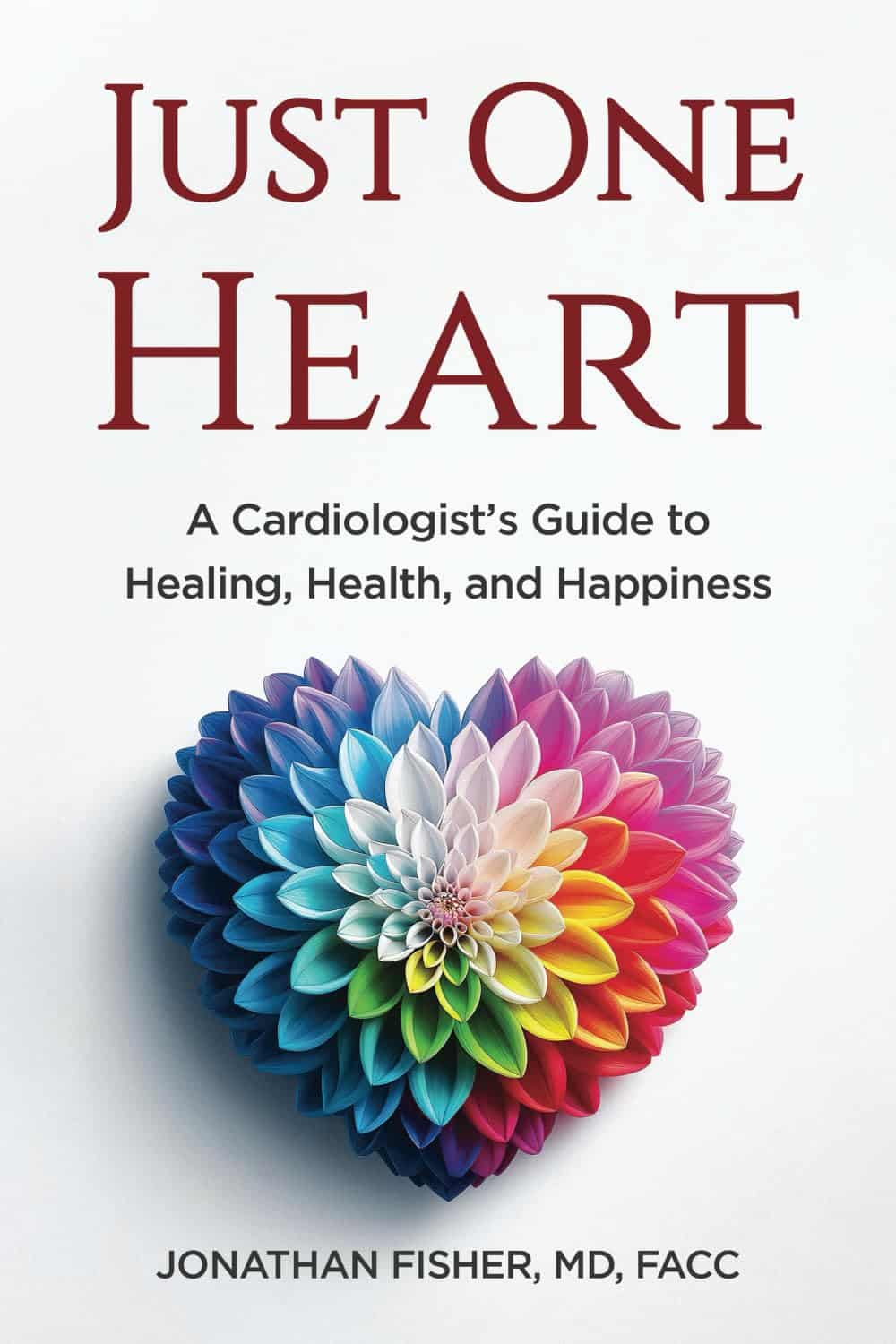
Fasting Without Crashing?
10almonds is reader-supported. We may, at no cost to you, receive a portion of sales if you purchase a product through a link in this article.
Intermittent Fasting: What’s the truth?
Before we get to facts and fictions, let’s quickly cover:
What is Intermittent Fasting?
Intermittent Fasting (IF) is an umbrella term for various kinds of time-restricted fasting, based on a schedule. Types include:
Time-restricted IF, for example:
- 16:8—Fast for 16 hours, eat during an 8-hour window
- 18:6–Fast for 18 hours, eat during a 6-hour window
- 20:4—Fast for 20 hours, eat during a 4-hour window
24hr fasting, including:
- Eat Stop Eat—basically, take a day off from eating once a week
- Alternate Day Fasting—a more extreme version of the above; it is what it sounds like; eat one day, fast the next, repeat
Non-fast fasting, e.g:
- 5:2—Eat normally for 5 days, have a very reduced calorie intake (⅓ of normal intake) for the other 2 days
- Fruit Fasting—have a small amount of fruit on “fast” days, but no other food
- The Warrior Diet—as above, but include a small amount of non-starchy vegetables
Why IF?
While IF is perhaps most commonly undertaken as a means of fat loss or fat management (i.e., keeping fat down when it is already low), others cite different reasons, such as short term cognitive performance or long-term longevity.
But… Does it work?
Here we get into the myth-busting bit!
“IF promotes weight loss”
Mix of True and False. It can! But it also doesn’t have to. If you’re a bodybuilder who downs 4,000 calories in your 4hr eating window, you’re probably not going to lose weight! For such people, this is of course “a feature, not a bug” of IF—especially as it has been found that, in an acute study, IF did not adversely impact muscle protein synthesis.
“IF promotes fat loss, without eating less”
Broadly True. IF was found to be potentially equal to, but not necessarily better than, eating less.
“IF provides metabolic benefits for general health”
Broadly True. IF (perhaps counterintuitively) decreases the risk of insulin resistance, and also has anti-inflammatory effects, benefits a healthy gut microbiome, and promotes healthy autophagy (which as we noted in a previous edition of 10almonds, is important against both aging and cancer)
However, results vary according to which protocol you’re observing…
For what it’s worth, 16:8 is perhaps the most-studied protocol. Because such studies tend to have the eating window from midday to 8pm, this means that—going against popular wisdom—part of the advice here is basically “skip breakfast”.
“Unlike caloric restriction, IF is sustainable and healthy as a long-term protocol”
Broadly True. Of course, there’s a slight loophole here in that IF is loosely defined—technically everyone fasts while they’re sleeping, at the very least!
However, for the most commonly-studied IF method (16:8), this is generally very sustainable and healthy and for most people.
On the other hand, a more extreme method such as Alternate Day Fasting, may be trickier to sustain (even if it remains healthy to do so), because it’s been found that hunger does not decrease on fasting days—ie, the body does not “get used to it”.
The American Journal of Clinical Nutrition wrote:
❝Alternate-day fasting was feasible in nonobese subjects, and fat oxidation increased. However, hunger on fasting days did not decrease, perhaps indicating the unlikelihood of continuing this diet for extended periods of time. Adding one small meal on a fasting day may make this approach to dietary restriction more acceptable.❞
“IF improves mood and cognition”
Mix of True and False (plus an honest “We Don’t Know” from researchers).
Many studies have found benefits to both mood and cognition, but in the short-term, fasting can make people “hangry” (or: “experience irritability due to low blood sugar levels”, as the scientists put it), and in the long term, it can worsen symptoms of depression for those who already experience such—although some studies have found it can help alleviate depressive symptoms.
Basically this is one where researchers typically append the words “more research is needed” to their summaries.
“Anyone can do IF”
Definitely False, unless going by the absolute broadest possible interpretation of what constitutes “Intermittent Fasting” to the point of disingenuity.
For example, if you are Type 1 Diabetic, and your blood sugars are hypo, and you wait until tomorrow to correct that, you will stand a good chance of going into a coma instead. So please don’t.
(On the other hand, IF may help achieve remission of type 2 diabetes)
Lastly, IF is broadly not recommend to children and adolescents, anyone pregnant or breastfeeding, and certain underlying health conditions not mentioned above (we’re not going to try to give an exhaustive list here, but basically, if you have a chronic health condition, we recommend you check with your doctor first).
WHICH APP?
Choosing a fasting app
Thinking of giving IF a try and would like a little extra help? We’ve got you covered!
Check out: Livewire’s 7 Best Intermittent Fasting Apps of 2023
Prefer to just trust us with a recommendation?
We like BodyFast—it’s #2 on Lifewire’s list, but it has an array of pre-set plans to choose from (unlike Lifewire’s #1, Zero), and plenty of clear tracking, scheduling help, and motivational features.
Both are available on both iOS and Android:
Don’t Forget…
Did you arrive here from our newsletter? Don’t forget to return to the email to continue learning!
Recommended
Learn to Age Gracefully
Join the 98k+ American women taking control of their health & aging with our 100% free (and fun!) daily emails:
-
Just One Heart – by Dr. Jonathan Fisher
10almonds is reader-supported. We may, at no cost to you, receive a portion of sales if you purchase a product through a link in this article.
First, what this is not: a book to say eat fiber, go easy on the salt, get some exercise, and so forth.
What this rather is: a book about the connection between the heart and mind; often written poetically, the simple biological reality is that our emotional state does have a genuine impact on our heart health, and as such, any effort to look after our heart (healthwise) would be incomplete without an effort to look after our heart (emotionally).
Dr. Fisher talks about the impact of stress and uncertainty, as well as peace and security, on heart health—and then, having sorted emotional states into “heart breakers” and “heart wakers”, he goes about laying out a plan for what is, emotionally and thus also physiologically, good for our heart.
Chapter by chapter, he walks us through the 7 principles to live by:
- Steadiness: how to steady your heart amid chaos
- Wisdom: how to develop a wise heart in uncertain times
- Openness: how to safely open your heart in a threatening world
- Wholeness: how to show up with your whole heart without going to pieces
- Courage: how to lead with a courageous heart when fear surrounds you
- Lightness: how to live with a light heart in a heavy world
- Warmth: how to love with a warm heart when life feels cold
The style is anything but clinical; it’s well-written, certainly, and definitely informed in part by his medical understanding of the heart, but it’s entirely the raw human element that shines throughout, and that makes the ideas a lot more tangible.
Bottom line: if you’d like your heart to be healthy (cardiac health) and your heart to be healthy (emotional health), this book is a very worthwhile read.
Click here to check out Just One Heart, and take care of yours!
Share This Post
-
Can Home Tests Replace Check-Ups?
10almonds is reader-supported. We may, at no cost to you, receive a portion of sales if you purchase a product through a link in this article.
It’s Q&A Day at 10almonds!
Have a question or a request? You can always hit “reply” to any of our emails, or use the feedback widget at the bottom!
In cases where we’ve already covered something, we might link to what we wrote before, but will always be happy to revisit any of our topics again in the future too—there’s always more to say!
As ever: if the question/request can be answered briefly, we’ll do it here in our Q&A Thursday edition. If not, we’ll make a main feature of it shortly afterwards!
So, no question/request too big or small
❝I recently hit 65 and try to get regular check-ups, but do you think home testing can be as reliable as a doctor visit? I try to keep as informed as I can and am a big believer in taking responsibility for my own health if I can, but I don’t want to miss something important either. Best as a supplemental thing, perhaps?❞
Depends what’s being tested! And your level of technical knowledge, though there’s always something to be said for ongoing learning.
- If you’re talking blood tests, urine tests, etc per at-home test kits that get sent off to a lab, then provided they’re well-sourced (and executed correctly by you), they should be as accurate as what a doctor will give, since they are basically doing the same thing (taking a sample and sending it off to a lab).
- If you’re talking about checking for lumps etc, then a dual approach is best: check yourself at home as often as you feel is reasonable (with once per month being advised at a minimum, especially if you’re aware of an extra risk factor for you) and check-ups with the doctor per their recommendations.
- If you’re talking about general vitals (blood pressure, heart rate, heart rate variability, VO₂ max, etc), then provided you have a reliable way of testing them, then doing them very frequently at home, to get the best “big picture” view. In contrast, getting them done once a year at your doctor’s could result in a misleading result, if you just ate something different that day or had a stressful morning, for example.
Enjoy
Share This Post
-
Proteins Of The Week
10almonds is reader-supported. We may, at no cost to you, receive a portion of sales if you purchase a product through a link in this article.
This week’s news round-up is, entirely by chance, somewhat protein-centric in one form or another. So, check out the bad, the very bad, the mostly good, the inconvenient, and the worst:
Mediterranean diet vs the menopause
Researchers looked at hundreds of women with an average age of 51, and took note of their dietary habits vs their menopause symptoms. Most of them were consuming soft drinks and red meat, and not good in terms of meeting the recommendations for key food groups including vegetables, legumes, fruit, fish and nuts, and there was an association between greater adherence to Mediterranean diet principles, and better health.
Read in full: Fewer soft drinks and less red meat may ease menopause symptoms: Study
Related: Four Ways To Upgrade The Mediterranean Diet
Listeria in meat
This one’s not a study, but it is relevant important news. The headline pretty much says it all, so if you don’t eat meat, this isn’t one you need to worry about any further than that. If you do eat meat, though, you might want to check out the below article to find out whether the meat you eat might be carrying listeria:
Read in full: Almost 10 million pounds of meat recalled due to Listeria danger
Related: Frozen/Thawed/Refrozen Meat: How Much Is Safety, And How Much Is Taste?
Brawn and brain?
A study looked at cognitively healthy older adults (of whom, 57% women), and found an association between their muscle strength and their psychological wellbeing. Note that when we said “cognitively healthy”, this means being free from dementia etc—not necessarily psychologically health in all respects, such as also being free from depression and enjoying good self-esteem.
Read in full: Study links muscle strength and mental health in older adults
Related: Staying Strong: Tips To Prevent Muscle Loss With Age
The protein that blocks bone formation
This one’s more clinical but definitely of interest to any with osteoporosis or at high risk of osteoporosis. Researchers identified a specific protein that blocks osteoblast function, thus more of this protein means less bone production. Currently, this is not something that we as individuals can do anything about at home, but it is promising for future osteoporosis meds development.
Read in full: Protein blocking bone development could hold clues for future osteoporosis treatment
Related: Which Osteoporosis Medication, If Any, Is Right For You?
Rabies risk
People associate rabies with “rabid dogs”, but the biggest rabies threat is actually bats, and they don’t even need to necessarily bite you to confer the disease (it suffices to have licked the skin, for instance—and bats are basically sky-puppies who will lick anything). Because rabies has a 100% fatality rate in unvaccinated humans, this is very serious. This means that if you wake up and there’s a bat in the house, it doesn’t matter if it hasn’t bitten anyone; get thee to a hospital (where you can get the vaccine before the disease takes hold; this will still be very unpleasant but you’ll probably survive so long as you get the vaccine in time).
Read in full: What to know about bats and rabies
Related: Dodging Dengue In The US ← much less serious than rabies, but still not to be trifled with—particularly noteworthy if you’re in an area currently affected by floodwaters or even just unusually heavy rain, by the way, as this will leave standing water in which mosquitos breed.
Take care!
Share This Post
Related Posts
-
The Other Circadian Rhythms
10almonds is reader-supported. We may, at no cost to you, receive a portion of sales if you purchase a product through a link in this article.
We’ve talked before about how circadian rhythm pertains not just to when it is ideal for us to sleep or be awake, but also at what times it is best to eat, exercise, and so forth:
The Circadian Rhythm: Far More Than Most People Know
Most people just know about the light consideration, per for example:
- How light can shift your mood and mental health, and
- How light tells you when to sleep, focus and poo
When your body parts clock on and off at the wrong time…
Now, new research has brought attention to how these things and more are governed by different physiological clocks within our bodies—and what this means for our health. In other words, if you are doing the various things at different times than you “should”, you will be training the different parts of your body (each with their independent clocks) to be on a different schedule, and so the different parts of your body will out of temporal sync with each other.
To put this in jet-lag terms: if your brain is in New York, while your heart is in Istanbul (not Constantinople) and your gut is in Tokyo, then this arrangement is not good for the health.
As for how it is not good for your health (i.e. the consequences) there’s still research to be done on some of the longer-term implications, but in the short term, one of the biggest effects is on our mood—most notably, increasing depression scores significantly.
And even more importantly, this is in the real world. That is to say, until quite recently, most data we had from studies on the circadian rhythm was from sleep clinic laboratories, which is great for RCTs but will always have as a limitation that someone sleeping in a lab is going to have some differences than someone sleeping in their own bed at home.
As the researchers said:
❝A critical step to addressing this is the noninvasive collection of physiological time-series data outside laboratory settings in large populations. Digital tools offer promise in this endeavor. Here, using wearable data, we first quantify the degrees of circadian disruption, both between different internal rhythms and between each internal rhythm and the sleep-wake cycle. Our analysis, based on over 50,000 days of data from over 800 first-year training physicians, reveals bidirectional links between digital markers of circadian disruption and mood both before and after they began shift work, while accounting for confounders such as demographic and geographic variables. We further validate this by finding clinically relevant changes in the 9-item Patient Health Questionnaire score.❞
Read in full: The real-world association between digital markers of circadian disruption and mental health risks
That questionnaire by the way sounds like an arbitrary thing they just made up, but the PHQ-9 (as it is known to its friends) is in fact the current intentional gold standard for measuring depression; we share it at the top of our article about depression, here:
The Mental Health First-Aid That You’ll Hopefully Never Need ← the test takes 2 minutes and you get immediate results
Want to know more?
For more about getting one’s entire self back into temporal sync (hey, wasn’t that the plot of a Star Trek episode?), sleep specialist Dr. Michael Breus wrote this excellent book that we reviewed a little while back:
Enjoy!
Don’t Forget…
Did you arrive here from our newsletter? Don’t forget to return to the email to continue learning!
Learn to Age Gracefully
Join the 98k+ American women taking control of their health & aging with our 100% free (and fun!) daily emails:
-
Intermittent Fasting for Women Over 50 – by Emma Sanchez
10almonds is reader-supported. We may, at no cost to you, receive a portion of sales if you purchase a product through a link in this article.
Intermittent fasting is promoted as a very healthful (evidence-based!) way to trim the fat and slow aging, along with other health benefits. But, physiologically and especially metabolically, the average woman is quite different from the average man! And most resources are aimed at men. So, what’s the difference?
Emma Sanchez gives an overview not just of intermittent fasting, but also, how it goes with specifically female physiology. From hormonal cycles, to different body composition and fat distribution, to how we simply retain energy better—which can be a mixed blessing!
We’re given advice about how to optimize all those things and more.
She also covers issues that many writers on the topic of intermittent fasting will tend to shy away from, such as:
- mood swings
- risk of eating disorder
- impact on cognitive thinking
…and she does this evenly and fairly, making the case for intermittent fasting while acknowledging potential pitfalls that need to be recognized in order to be managed.
Lastly, the “over 50” thing. This is covered in detail quite late in the book, but there are a lot of changes that occur (beyond the obvious!), and once again, Sanchez has tips and tricks for holding back the clock where possible, and working with it rather than against it, when appropriate.
All in all, a great book for any woman over 50, or really also for women under 50, especially if that particular milestone is on the horizon.
Get your copy of Intermittent Fasting for Women over 50 from Amazon today!
Don’t Forget…
Did you arrive here from our newsletter? Don’t forget to return to the email to continue learning!
Learn to Age Gracefully
Join the 98k+ American women taking control of their health & aging with our 100% free (and fun!) daily emails:
-
Figs vs Passion Fruit – Which is Healthier?
10almonds is reader-supported. We may, at no cost to you, receive a portion of sales if you purchase a product through a link in this article.
Our Verdict
When comparing figs to passion fruit, we picked the passion fruit.
Why?
Both are top-tier fruits! But the passion fruit is just that bit more passionate about delivering healthy nutrients:
In terms of macros, passion fruit has slightly more carbs, notably more protein, and a lot more fiber, giving it the win in this category.
In the category of vitamins, figs have more of vitamins B1, B5, B6, E, and K, while passion fruit has more of vitamins A, B2, B3, B9, C, and choline, making for a marginal win by the numbers for passion fruit here.
When it comes to minerals, figs have more calcium, manganese, and zinc, while passion fruit has more copper, iron, magnesium, phosphorus, potassium, and selenium. A clearer win for passion fruit this time.
Adding up the sections makes for an easy overall win for passion fruit, but again, figs are really a top-tier fruit too; passion fruit just beats them! By all means enjoy either or both; diversity is good!
Want to learn more?
You might like:
Top 8 Fruits That Prevent & Kill Cancer ← figs have antitumor effects specifically, while removing carcinogens too, and additionally sensitizing cancer cells to light therapy
Enjoy!
Don’t Forget…
Did you arrive here from our newsletter? Don’t forget to return to the email to continue learning!
Learn to Age Gracefully
Join the 98k+ American women taking control of their health & aging with our 100% free (and fun!) daily emails:







